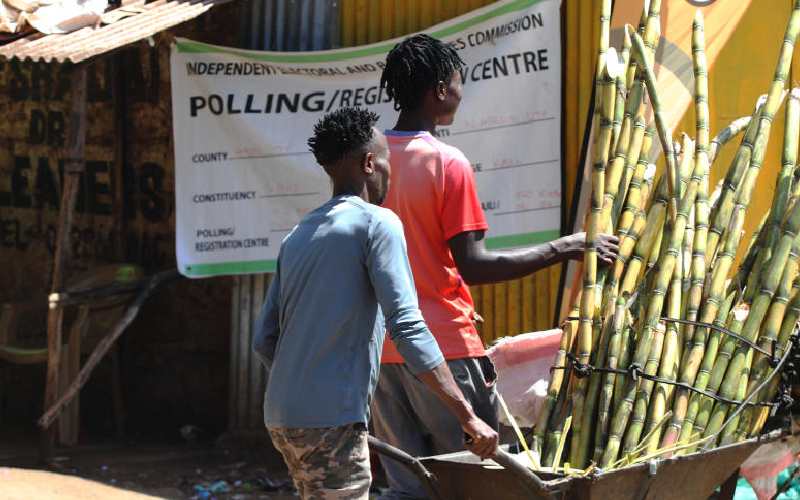×
The Standard e-Paper
Join Thousands Daily

Young men pull a handcart past an IEBC voting registration centre at Kibera Primary school in Nairobi County. [Elvis Ogina,Standard]
Voter apathy should concern us, it is a threat to democracy